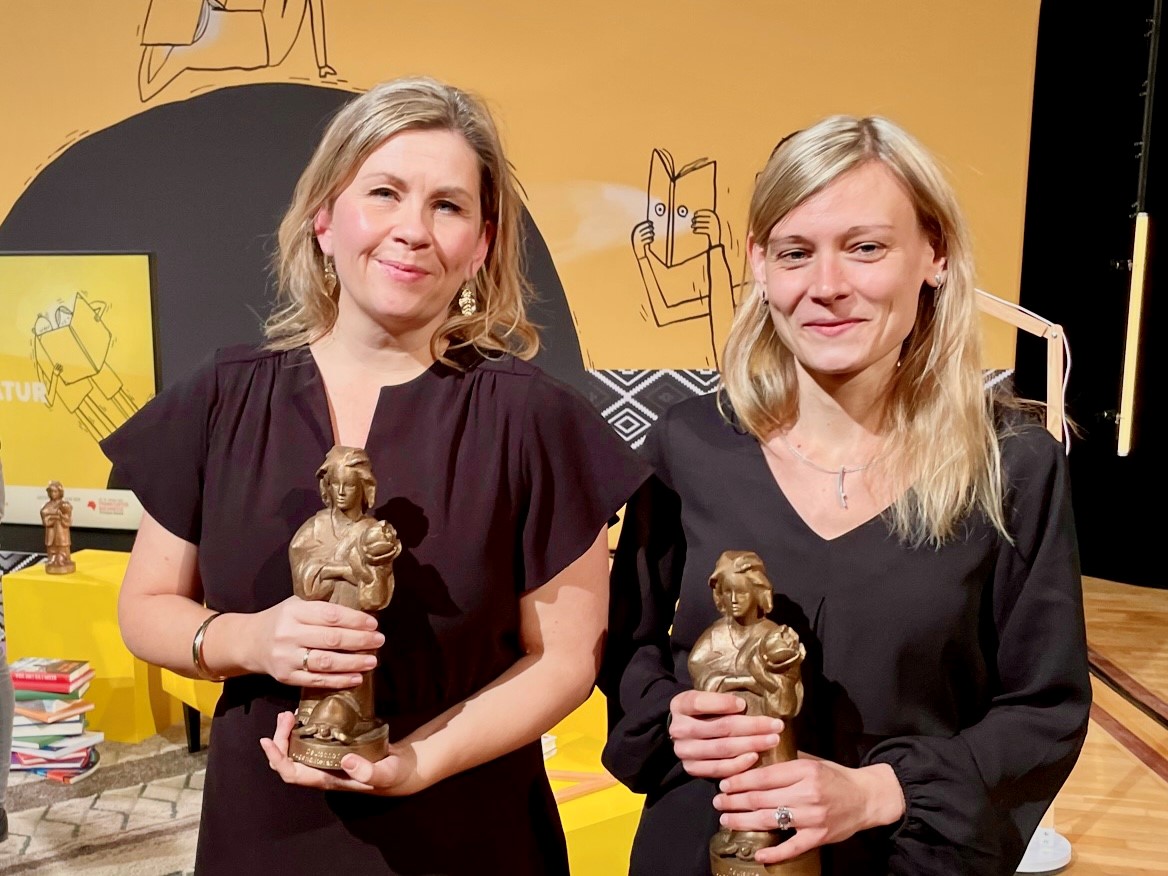“I think all good stories should hurt, make you laugh and make you cry – at the same time.”
What was the reason for you to become a writer for children’s literature?
I’ve always loved to read and I’ve always read books for adults and for children (even before I had my own children). In children’s literature you have the possibility to describe some first-time-experiences, and maybe the reader also experience something for the first time through reading your book. That is a huge responsibility, but it is also a wonderful gift for an author. People tend to remember books and stories from their childhood, and (maybe) to be of some importance to a child is something that inspires and keeps me going.
I studied children’s literature before I started writing books, and during these studies I had the pleasure of reading a lot of different books for children – from picture books to young adult novels. I found these books a lot more interesting than books for adults because they are more direct, more playful and imaginative, and they capture the reader intensely if they are well written.
Before becoming an author you worked as a lecturer. Which profession do you like better and why?
I love to write, but it is very dificult to live of writing, so most authors also have a normal job. I now work as an editor for children and young adult books in a publishing house in Oslo. I liked very much the work as a lecturer, but working with literature, both as an author and as an editor, is really my passion.
What are in your point of view the biggest challenges for authors nowadays?
I think the biggest challenge is to compete with other types of entertainment, like tv shows, movies and games. Children and young people read less than before and many find it dificult to read a book (as do many adults). Although most of us love a good story, reading is unfortunately considered as a boring activity by many. The focus on literature and reading in schools are therefore of huge importance.
What are your experiencies with (international) publishing houses? How free are your decisions concerning the narratives of your novels?
When I work with the publishing house in Norway, I have a great deal of influence to the narrative of the book and choices regarding for example the cover design. When a book is published in another country this is very different. I sometimes have a lot of contact with the translator during the process if he or she has questions, but not all translators need or want this contact, so the processes are really different. The publishing houses also decides what the cover should look like and if they want to illustrate the book or not.
How important is the feedback from the readers of your books to you?
The feedback from my readers is much more important to me than the opinion of the critics. Especially the feedback I get from children! Children are often very honest, and I apreciate an honest reading of my book (although it hurts if they think my book is really bad). Over the years I have had all kinds of feedback, from "I loved your book" to "I absolutely hated it", and as an author you simply have to deal with such different responses on your work.
How important is the opinion of critics about your novels to you?
I think it is a lie when authors say that they don’t care about what the critics say as long as the readers are positive. The readers are more important than the opinion of the critics, but I also value a good review from a competent reader, and I think most authors do.
Do you ask your children for inspiration, when you write a book for young readership? Or do you give unpublished drafts to your children for test reading?
I sometimes ask my children what they think my character would do or how he or she would deal with different situations. I also check with them whether the language or the characters I use appear natural or whether it sounds like an adult trying to talk like a child. But my children never read drafts or the entire manuscript before it is published.
What are your projects for the future?
I am currently working on a manuscript about two girls who can’t stand one another and are in a competitive relationship – before they unwillingly end up as each others "sisters". It is a story about how bad you can get and what means you turn to to bring another person down.
In your books for children you often deal with heavy topics like poverty, beeing an outsider or even racism and violence against jews. What is fascinating for you in this context?
I like to write about children who experience real problems, but the stories don’t need to be sad or depressing. You can write about something dramatic or problematic and yet include humor, good relationships, happiness and hope. I think all good stories should hurt, make you laugh and make you cry – at the same time. The most impotant thing is not the theme for the book but how the characters experience the situations you invent for them and how the story is constructed.
We wish you all the best for your future projects, Mrs. Kaurin! We are looking forward to reading even more of your wonderful stories!

